
Henry Bergh founded the American Society for the Prevention of Cruelty to Animals (ASPCA) in April, 1866, three days after the first effective legislation against animal cruelty in the United States was passed into law by the New York State Legislature. Bergh also prompted the formation, in 1874, of the New York Society for the Prevention of Cruelty to Children (MSPCC).
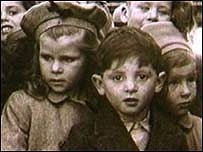
Foster care is a system in which a minor has been placed into a ward, group home, or private home of a state-certified caregiver, referred to as a "foster parent" or with a family member approved by the state. The placement of the child is normally arranged through the government or a social service agency. The institution, group home, or foster parent is compensated for expenses unless with a family member. In some states, relative or "Kinship" caregivers of children who are wards of the state are provided with a financial stipend.
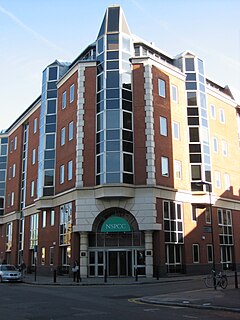
The National Society for the Prevention of Cruelty to Children (NSPCC) is a British child protection charity.
Child neglect is a form of abuse, an act of caregivers that results in depriving a child of their basic needs, such as the failure to provide adequate supervision, health care, clothing, or housing, as well as other physical, emotional, social, educational, and safety needs. All societies have established that there are necessary behaviors a caregiver must provide in order for a child to develop physically, socially, and emotionally. Causes of neglect may result from several parenting problems including mental disorders, unplanned pregnancy, substance use disorder, unemployment, overemployment, domestic violence, and, in special cases, poverty.
The United States Children's Bureau is a federal agency organized under the United States Department of Health and Human Services' Administration for Children and Families. Today, the bureau's operations involve improving child abuse prevention, foster care, and adoption. Historically, its work was much broader, as shown by the 1912 act which created and funded it:
The said bureau shall investigate and report to [the Department of Commerce and Labor] upon all matters pertaining to the welfare of children and child life among all classes of our people, and shall especially investigate the questions of infant mortality, the birth-rate, orphanage, juvenile courts, desertion, dangerous occupations, accidents and diseases of children, employment, legislation affecting children in the several states and territories.

Child abuse or child maltreatment is physical, sexual, and/or psychological maltreatment or neglect of a child or children, especially by a parent or a caregiver. Child abuse may include any act or failure to act by a parent or a caregiver that results in actual or potential harm to a child and can occur in a child's home, or in the organizations, schools, or communities the child interacts with.

Child protection is the safeguarding of children from violence, exploitation, abuse, and neglect. Article 19 of the UN Convention on the Rights of the Child provides for the protection of children in and out of the home. One of the ways to ensure this is by giving them quality education, the fourth of the United Nations Sustainable Development Goals, in addition to other child protection systems.

The New York Society for the Prevention of Cruelty to Children was founded in 1874. It is the world's first child protective agency. It is sometimes called the Gerry Society after one of its co-founders, Elbridge Thomas Gerry. It is commonly seen as having played a key role in the development of children's rights and child protective services in the English-speaking world. Today it offers support and advocacy for high-risk and abused children, parental skills classes, and professional training in the identification and reporting of child abuse and neglect.
Child protective services (CPS) is the name of a government agency in many states of the United States responsible for providing child protection, which includes responding to reports of child abuse or neglect. Some states use other names, often attempting to reflect more family-centered practices, such as department of children and family services (DCFS). CPS is also sometimes known by the name of department of social services, though these terms more often have a broader meaning.
Transitional age youth can reference both a developmental period and be a descriptor regarding eligibility for certain services. While there are variations in definitions, the age ranges do consistently overlap and include late adolescence to early adulthood. This range is considered a critical period in human development characterized by several changes socially, environmentally, and cognitively. During this time, individuals can experience changes in their social roles and function, family and peer supports, exposure to substance use, educational and vocational programs, as well as changes in healthcare providers from pediatric to adult settings.
Child and family services is a government or non-profit organisation designed to better the well being of individuals who come from unfortunate situations, environmental or biological. People who seek or are sought after to participate in these homes have no other resource to turn to. Children might come from abusive or neglectful homes, or live in very poor and dangerous communities. There are also agencies that cater to people who have biological deficiencies. Families that are trying to live in stable lives come to non-profit organisations for hope of a better future. Child and family services cater to many different types of people who are all in different situations. These services might be mandated through the courts via a governmental child protection agency or they might be voluntary. Child and family services may be mandated if:
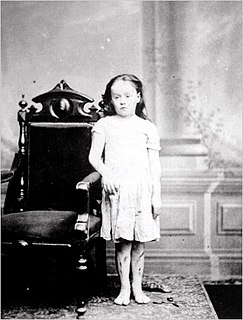
Mary Ellen Wilson also called Mary Ellen McCormack was an American whose case of child abuse led to the creation of the New York Society for the Prevention of Cruelty to Children. At the age of eight, she was severely abused by her foster parents, Francis and Mary Connolly. Because she was assisted by Henry Bergh, then the head of the American Society for the Prevention of Cruelty to Animals, some sources incorrectly state that statutes against cruelty to animals had to be used to remove her from the home. Hers was the first documented case of child abuse in the United States.

Caroline White was an American philanthropist and anti-vivisection activist. She co-founded the Pennsylvania Society for the Prevention of Cruelty to Animals (PSPCA) in 1867, founded its women's branch (WPSPCA) in 1869, and founded the American Anti-Vivisection Society (AAVS) in 1883.
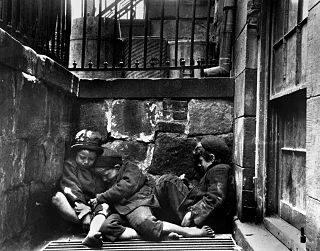
Foster care is the term used for a system in which a minor who has been made a ward is placed in an institution, group home, or private home of a state certified caregiver. The placement of the child is usually arranged through the government or a social-service agency. The institution, group home or foster parent is provided compensation for expenses.
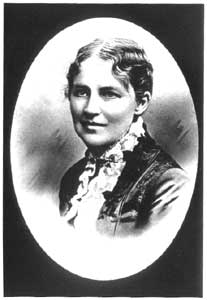
Etta Angell Wheeler was the rescuer and advocate of Mary Ellen Wilson, whose infamous abuse story led to the creation of the New York Society for the Prevention of Cruelty to Children. Wheeler was also influential in the society's creation because she convinced future founder of the society, Henry Bergh, who at the time was founder of the American Society for the Prevention of Cruelty to Animals, to take on the issue and spearhead the case.

The incarceration of women in the United States refers to the imprisonment of women in both prisons and jails in the United States. There are approximately 219,000 incarcerated women in the US according to a November 2018 report by the Prison Policy Initiative, and the rate of incarceration of women in the United States is at a historic and global high, with 133 women in correctional facilities per every 100,000 female citizens. The United States is home to just 4% of the world's female population, yet the US is responsible for 33% of the entire world's incarcerated female population. The steep rise in the population of incarcerated women in the US is linked to the complex history of the War on drugs and the US's Prison–industrial complex, which lead to mass incarceration among many demographics, but had particularly dramatic impacts on women and especially women of color. However, women made up only 10.4% of the US prison and jail population, as of 2015.

The New York City Administration for Children's Services (ACS) is a New York City government agency that protects and promotes safety and the well-being of New York City's children and families by providing child welfare, juvenile justice, and early care and education services.
Catholic Guardian Services (CGS) is a human services non-profit organization sponsored by the Catholic Charities of the Archdiocese of New York with programs that help a large needy population in the New York metropolitan area.
Residential child care communities or children's homes are a type of residential care, which refers to long-term care given to children who cannot stay in their birth family home. There are two different approaches towards residential care: The family model and the shift care model.
Under normal circumstances, the United States child welfare systems is considered by experts to be underfunded and strains social workers with high case loads. However, during the 2020 COVID-19 pandemic, the U.S. experienced an unprecedented lockdown and national unemployment reached a record high. This presents an issue because it is recorded that during times of economic stress, child abuse skyrockets.











